The relentless touring from Katy Guillen & The Girls meant witnessing the growing audiences at each show. Imprinting their names into shows such as Montreal International Jazz Festival and the International Blues Challenge made audiences fall in love with the ensemble. Artists such as The Revivalists, Robin Trower, and The Doobie Brothers giving their seal of approval only further cemented Katy Guillen & The Girls’ burgeoning accomplishments. So it wouldn’t be hard to imagine the heartache and frustration that Guillen began to experience when her once-promising band separated. On top of this development, Guillen’s relationship with her partner had reached its unforeseen conclusion. The toll began to wear on Guillen, with thoughts about what was subsequent weighing on her.
Enter Guillen’s old bandmate Stephanie Williams. During the start of the pandemic, the duo quickly went to work on generating a path for themselves musically and working on their identities. The result is Katy Guillen & The Drive, an endeavor that strums up vintage rock and roll sensibilities and heavier sonic experience than the duo’s previous efforts with The Girls.
Having dropped their first EP, Dream Girl, before the lockdown set in, Guillen & Williams took demos to producer/engineer Kevin Ratterman (My Morning Jacket, Heartless Bastards, Ray LaMontagne) at Invisible Creature Studio in Los Angeles. From their work with Ratterman emerged the four-track EP Battles and their full-length debut Another One Gained, set for release on August 19. The tracks conjure up a darker side of the twosome, with more indie-rock guitar riffs and lyrics tapping into their inner core.
You picked up the guitar at an early age. What was your driving force in wanting to learn how to play?
Music and guitar playing was always part of my family. My grandpa, mom, and uncle all played, and that’s probably why music felt so ingrained from the beginning. The initial driving force came from wanting to be like my family. I started on piano and loved it. Shortly after starting piano lessons, I got my first guitar at eight and never put it down. Your reasons and understanding change as you develop as a musician and a person. I eventually realized I enjoyed playing music because it gave me a sense of belonging, identity, and purpose.
Reading about your musical history, you have been deeply entrenched within the blues. Could you say the rich history of the genre within Kansas City contributed to you being so drawn to it?
Yes, Kansas City has a vibrant blues and jazz history and community. I grew up going to blues jams across the city, meeting new musicians with every stop. My dad used to take me all over town to play with different people and hear music. That’s how I learned how to play- jamming on songs with total strangers. I was really fortunate to get to play with some great Kansas City blues musicians during these years, like Cotton Candy, D.C. Bellamy, Baby Lee, and Phil Callier.
What were some of the artists or albums that were so influential to you?
When I was twelve, I got Jonny Lang’s first album Lie To Me, and that’s part of what got me into blues at an early age. I would listen to that album and mimic every lick. Then I started getting into some older original blues artists like Muddy Waters, John Lee Hooker, Big Mama Thornton, and Koko Taylor. Bonnie Raitt’s Luck Of The Draw was a big part of my childhood because my mom listened to it often. I also heard lots of Mary Chapin Carpenter growing up. As I got older, I got into songwriters like Patty Griffin and Erika Wennerstrom. A few albums I’ve loved are Patty Griffin’s Living With Ghosts, Heartless Bastards’ Arrow, Janelle Monae’s Dirty Computer, The Bands’ self-titled album, Fanny’s Fanny Hill, and Stevie Wonder’s Songs In The Key Of Life.
When your time with The Girls ended along the same time as your relationship with your partner, I saw that you struggled with wondering what was next. What did you do to find yourself doing to find out what you were looking for?
I did some traveling, tried out playing some ‘solo shows,’ worked between a couple of different odd jobs that were not in music, and took lots of alone time. I wrote quite a bit during this time. I knew I wanted to continue playing music, and I wanted to continue playing with Steph, but I wasn’t sure what that would look like after such a long and defined period of time with our old band. It took some trial and error to get to where we are now with this new album.
Was there any point where you told yourself that you wouldn’t continue focusing on music?
During that time of figuring out what was next, I was feeling lost, unsure, and having lots of self-doubts. I was struggling with depression and social anxiety. I’ve gone through periods of feeling burnt out before, but I think that can be normal for people on this career path, and lots of my musician friends have had similar emotional and mental experiences. I think it’s just what comes with the territory, and these issues never go away completely, but you learn how to manage them.
Having you and Stephanie working together as a duo for so long, what was different when The Drive became a reality?
We decided we wanted to continue as a band, but it needed to be different and have its own identity, so it felt like we were starting over in many ways. We wanted it to be its own thing, unique from our old band. So we wrote all new music, tried out different sounds and styles, experimented with a couple of different bass players, and even started adding an auxiliary member for some shows. We chose to keep the band at its core to just the two of us since we were writing and recording all of the music. At times, we were even touring as a duo. It’s been great to have such fluidity and freedom with this new project as we work with and build around our musical partnership.
What was Kevin’s initial meeting with you like when crafting the Battles EP and the full-length?
We sent Kevin about fifteen demos we recorded at home over the pandemic. We did a few zoom meetings, where we bounced around ideas to do with the direction of the sound, what the songs needed structure-wise, and what various instrumentation we wanted to try. Kevin had lots of ideas right off the bat, and he heard the whole album’s soundscape before we even started tracking with him. We trusted and respected him so much and had a blast working with him and trying out his ideas.
How much was altered with the demos you and Stephanie brought to Kevin? Did you scrap any of the demos altogether?
We sent fifteen songs to Kevin, and we were able to record all of them with him at Invisible Creature. The main things that changed were structural additions like an added chorus or bridge, a longer outro, and an added guitar solo. We also were able to try various instrumentations at Kevin’s studio. It was fun to play with many instruments we don’t have at home, like synths, Rhodes, vibraphone, timpani, and many unique guitar pedals. Not all of the songs made it to the EP and LP, but we hope to release them eventually.
After the recording process, what did you take away from working with Kevin?
Through recording these songs with Kevin, we learned so much more about production, the impact of added layers and textures, song structures, and the magic that can happen when you stay open to trying new ideas and different instruments.
Would you say the trip to LA strengthened your relationship with Stephanie?
Our Trip to LA to record was the first real trip we took after a year of lockdown, being stuck at home without live shows during the pandemic. Not only did it feel freeing, but it was the first time we really stretched outside our comfort zone with where we recorded. By the time we got home and reflected on our trip and the studio, I could tell that we grew from the experience and learned even more about what we want to hear in our music moving forward.
Writing the album lyrics, did you sometimes feel overwhelmed with the whole process? I imagine that when you were putting the words together, it brought up moments of pain.
The lyrics came together mainly during those moments of pain, so there was little conjuring that needed to happen. I write in journals and a lot of the songwriting I was doing a couple of years ago was helping me to cope with the changes. Part of what helps me get through or understand difficult, emotional times is expressing them through music and words. Writing can mean different things to artists at different times. For me, with this album, it ended up being incredibly therapeutic and helpful.
What tracks would you want listeners and fans to get connected with on the new album?
I hope people connect with all of the songs. They’re all meaningful and helped me in different ways, and I know that everyone hears and appreciates something different in every song. The album is meant to be heard as a whole, and I hope people find something in it that makes them feel connected to an emotion or memory.
Photo Courtesy: Morgan Jones



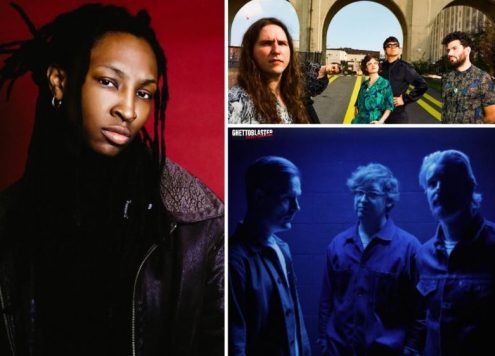
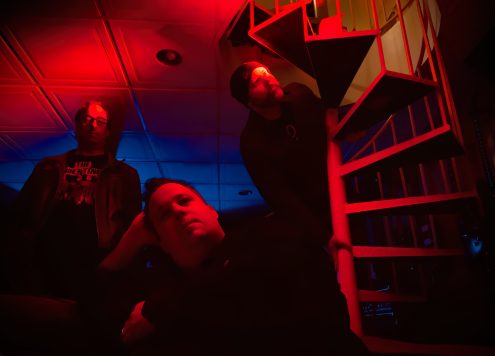
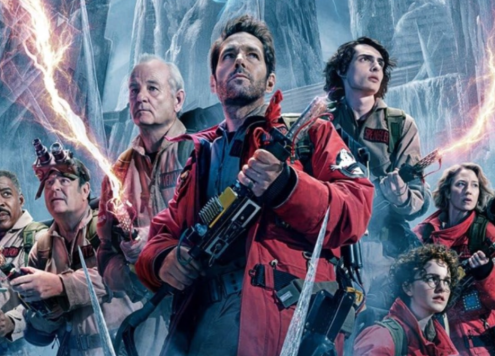

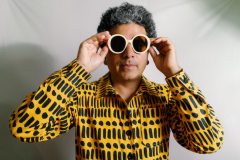
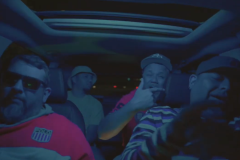
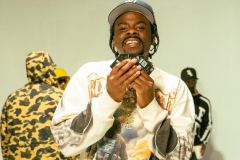
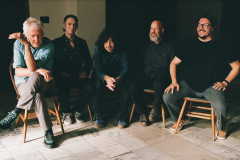

Social Media